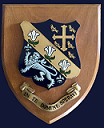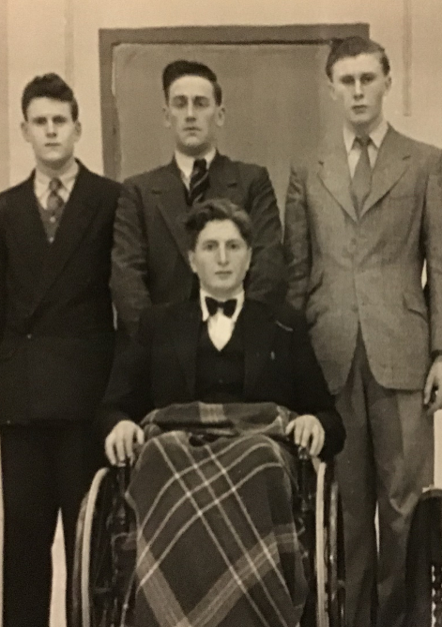
St Joseph's Society


‘St Francis de Sales was my home parish. The earliest parish priest I can recall was Fr Peter Walsh, and one of the curates was Fr Ted Formby. I also remember that there was a cellar underneath the presbytery which was used as an air raid shelter during the War, and I think it was sometimes used as accommodation for Irish priests visiting Aintree for the Grand National!
I entered Underlow in 1947 with Joe Weston and Bernard Eager amongst others, in a class of over 30. I do recall the Christmas Pantomimes, mainly scripted by Fr Alex Jones and Fr Tom Cummins. They were excellent.
There were good plays performed in the Higher Line also, and produced by Fr Gerry Grealey.
The system/staff liked to keep students busy, and I do remember that if you didn’t play sport, and I didn’t, Fr Basil Walker (Prefect), used to get work parties together for the making and laying out of cinder paths all over the place. He also made full use of a tractor, which helped regularly with the cutting of acres of College grass. The principal seemed to be that if they kept you occupied, you wouldn’t get into any trouble!
In Phils, we were joined by a large intake of students from Salford, and it was about this time that we took part in the growth and development of the Catholic Evidence Guild.
The Guild was formed in Westminster at the end of the Great War; lay volunteers expounding/clarifying Roman Catholic Church doctrine, and Archbishop Godfrey, who had seen, heard and was enthused by the CEG at Speakers’ Corner in Hyde Park, London, insisted that his church students became involved in this ministry.
Students at Upholland practiced their talks to become licenced, amid polite(?) heckling from fellow students by the side of the Top Lake, and then we would go to the Pier Head in Liverpool, or with the Salford students, to a bombed out site in Deansgate, Manchester. There, amid the noise of traffic, or at the Pier Head, with the noise of the ferries or the trams, our theology was tested and developed, and our communication skills were improved. We also learned to cope with the noise of other speakers nearby, and the heckling that came with the ministry.
What did Upholland College do for me? It taught me to look at, and above all, listen, to people. That led to preaching, for example, that met them where they were, and not necessarily where you would like them to be. From that position, came the opportunity for further spiritual development and growth.’